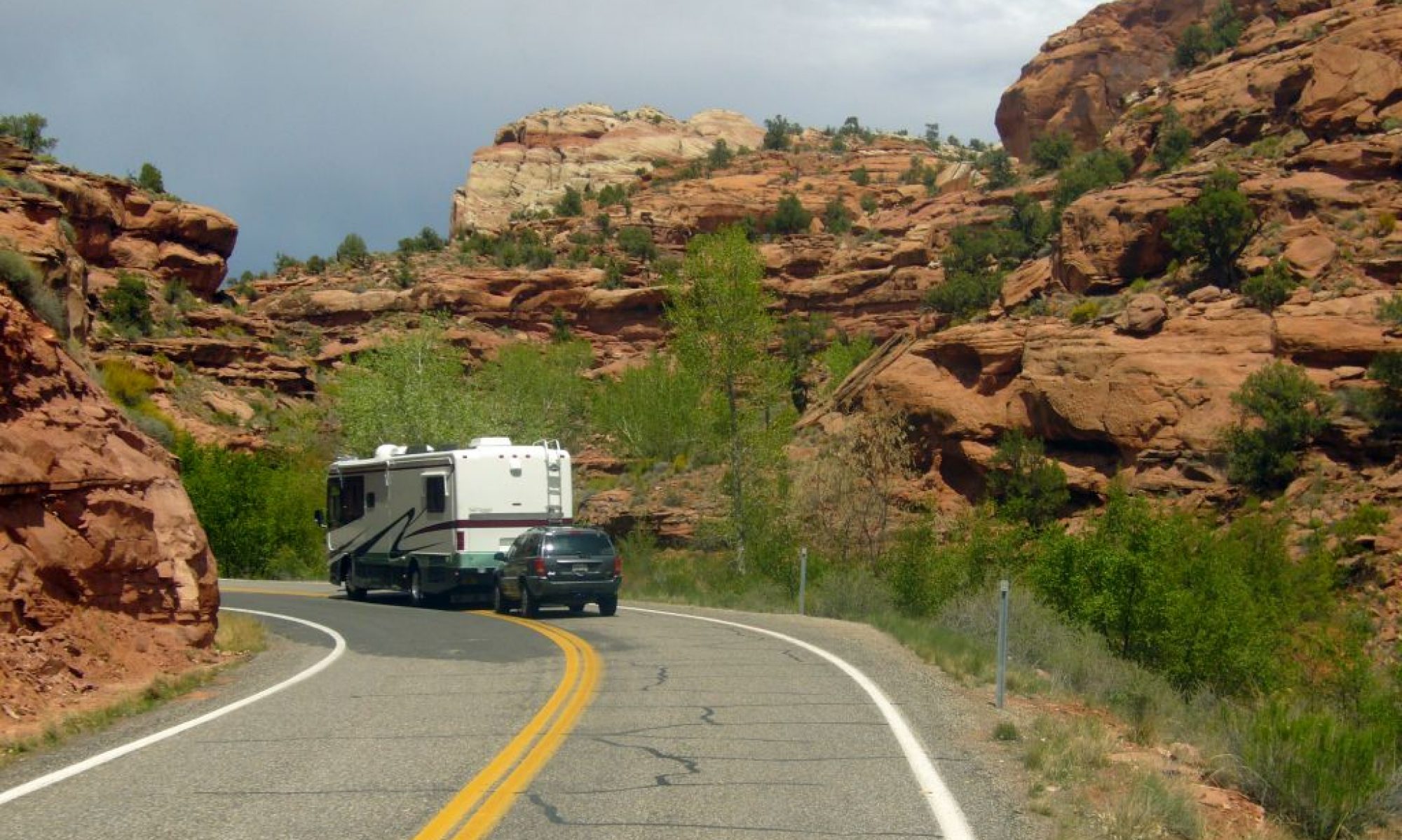Which type of RV do I need?
The answer depends on where you plan to travel, how many people will come along, what ‘toys’ you plan to take with you, what comforts you need in your home from home, and your budget. (Toys could be bicycles, dirt bikes, canoes, mountain bikes, kayaks and ATVs.) How often you plan to move might also be a factor in your choice.
The length of your travels/stays will also be a factor. The needs of fulltimer, long-timers, short-timers, or weekenders will likely be quite different.
It’s often said that floorplan is the main factor that determines if you’ll ultimately be happy with your RV. However, other factors may determine the size and type of RV you buy, and floorplan may be a compromise.
Brands and models come and go over the years. Corporate acquisitions and mergers have been numerous. Buying a used RV manufactured by a company no longer in business need not be a major concern: Many of the components and systems used by different manufacturers are the same, and repairs services are not usually limited to a single brand.
Some of the available types of RV include:
Popup trailer or tent trailer
This lightweight trailer, with either fabric/screen or hard (fiberglass) sides, folds down to a low-profile trailer that can be easily towed by a passenger car or lightweight pickup truck. When open, the popup has some of the features of a tent, but the occupants are elevated off the floor. Hard-sided models provide greater protection from the elements.
The popup trailer provides good utility at a very economical price. Amenities can include cooking and possibly shower facilities.
Truck camper, also known as a slide-in camper
Designed to be slid-into and carried in the bed of a pickup truck, this RV allows the owner to camp in remote, off-road locations. It usually provides a lot of utility in a small space, including kitchen, shower and toilet facilities.
The camper can be removed from the pickup truck using attached jacks, allowing the pickup truck to be used separately at the destination.
Van conversion, or class B
A van conversion contains living, cooking, sleeping and bathroom accomodations. Larger versions, known as Class B+, can rival the utility of a class C motorhome.
Teardrop Trailer
A small, streamlined, lightweight trailer named for it’s distinctive shape, and can be towed by a small car. It has sleeping accommodation for two, but very limited storage. Some have an outdoor kitchen. Teardrop trailers have a large number of enthusiastic owners.
Travel trailer
Also known as a bumper-pull trailer or, in the UK, a caravan, a travel trailer is typically towed by a pickup truck. Smaller/lighter trailers may be towable with an appropriately equipped passenger car.
Equipped with most of the conveniences of motorhomes, travel trailers may also have one, or more slideouts to provide a large amount of interior space.
A travel trailer can be detached from the tow vehicle at your destination, thereby providing convenient local transport.
Note that the weight/tow ratings of the tow vehicle need to be adequate to tow the trailer.
Fifthwheel trailer
The front hitch of a fifthwheel trailer is carried in the bed of a pickup truck instead of on the rear tow bar & hitch of the tow vehicle. This allows a fifthwheel to be considerably larger and heavier than a travel trailer.
The weight/load ratings of the pickup truck need to be appropriate for what’s being towed. See the Weight Ratings page for more details.
Class C motorhome
A class C is smaller than the class A, and is built on a specially manufactured van chassis. Floorplans are similar to those of a class A, but are more compact due to the smaller overall interior space. They include living quarters with an integrated kitchen, dining area, one or more bedrooms, and a bathroom.
A class C is recognized by the cab where the driver sits. The main body of the class C usually projects over the top of the cab to house a bunk or storage space.
Class A motorhome
Often referred to as a “coach”, a class A motorhome is a self-contained motorized RV that looks something like a bus.
Floorplans include living quarters, a fully equipped kitchen, dining area, one or more bedrooms, and one or more bathrooms.
Class A motorhomes vary in length from approximately 28 feet to 45 feet, and can be powered by a gas or diesel engine. They are also equipped with a generator to provide 120V power for appliances and air conditionners.
Bus conversion
A bus conversion is a highly customized coach on a bus chassis. Many start out as an empty bus shell built by Prevost, and are “converted” by specialized bus conversion companies. Some were previously a commercial bus, and the interior completely remodeled.
Companies such as Newell design and manufacture their own chassis specifically for their own bus conversions.
Floorplans are customized, as are the living and sleeping accommodations. Luxury is usually the operative word associated with the interior of bus conversions.
Some bus conversions can be seen on freeways with distinctively painted exteriors, and are usually owned by celebrities to transport their entourage.
Toyhauler
An RV (motorhome, travel trailer, or fifthwheel) with a ‘garage’ section, usually at the rear, which allows owners to bring along quads, motorcycles, bicycles and other toys.
Often, fold-up bunks attached to the walls of the ‘garage’ can be lowered for additional sleeping accomodation.
Specialized 4×4 RVs
Several manufacturers produce specialized 4×4 RVs intended for serious off-road RVing. They typically come equipped with larger fuel tanks, water tanks, black/gray tanks, and battery banks.
Park model
Folks who decide to leave their RV permanently/semi-permanently at one location may choose to have a ‘park model’. A small house (but not a ‘tiny house’), this type of RV will arrive and stay on a trailer, but they’re not intended to be continually moved.
Rent or own
Economically, anyone using an RV for only a few short trips a year should consider renting. In addition to avoiding the initial purchase price, they will also save on maintenance costs.
Another reason to rent is to help with the decision on which made/model to buy. A few short trips in different rented RVs will help clarify which floorplans, appliances and available storage work best for you and your family before making the commitment to purchase.

